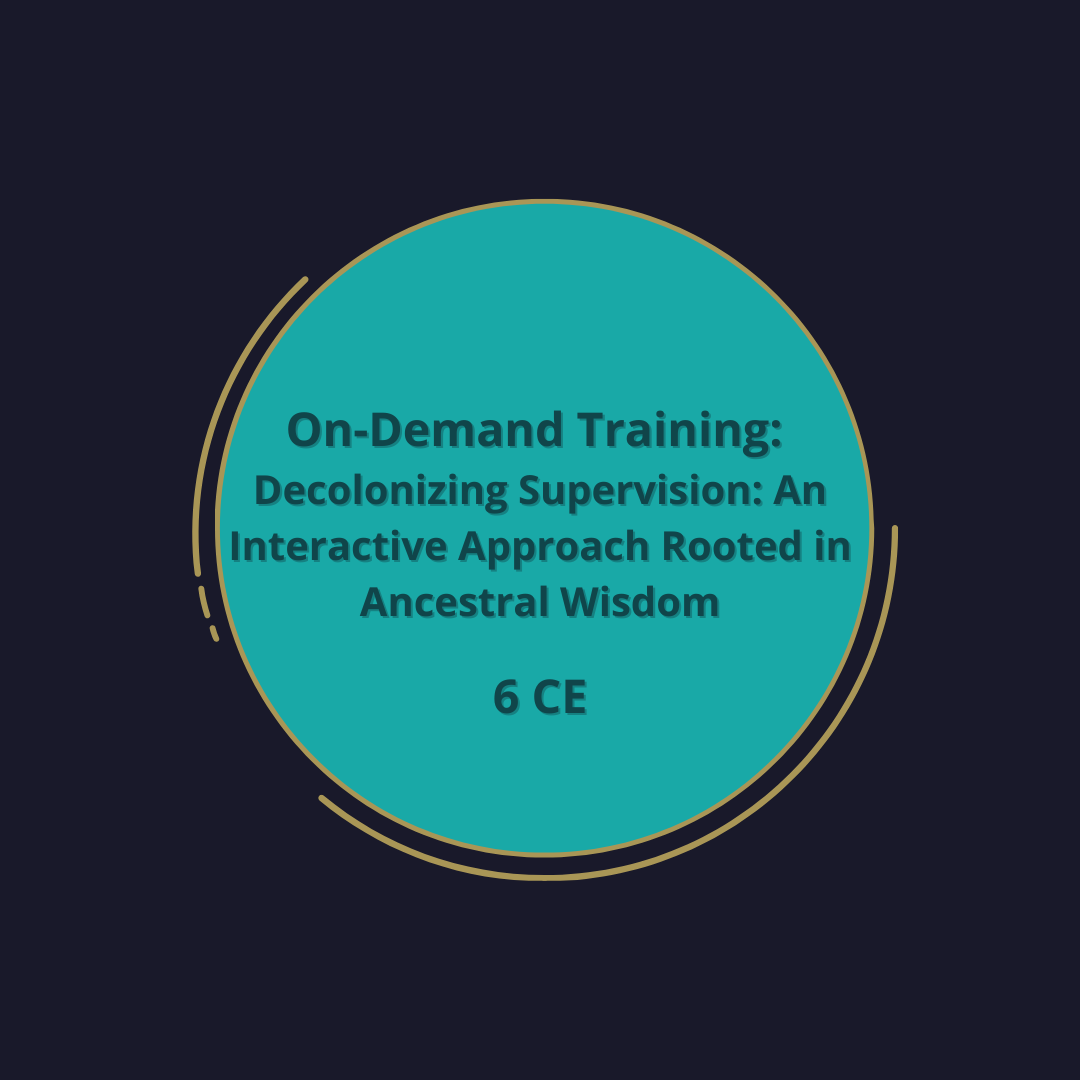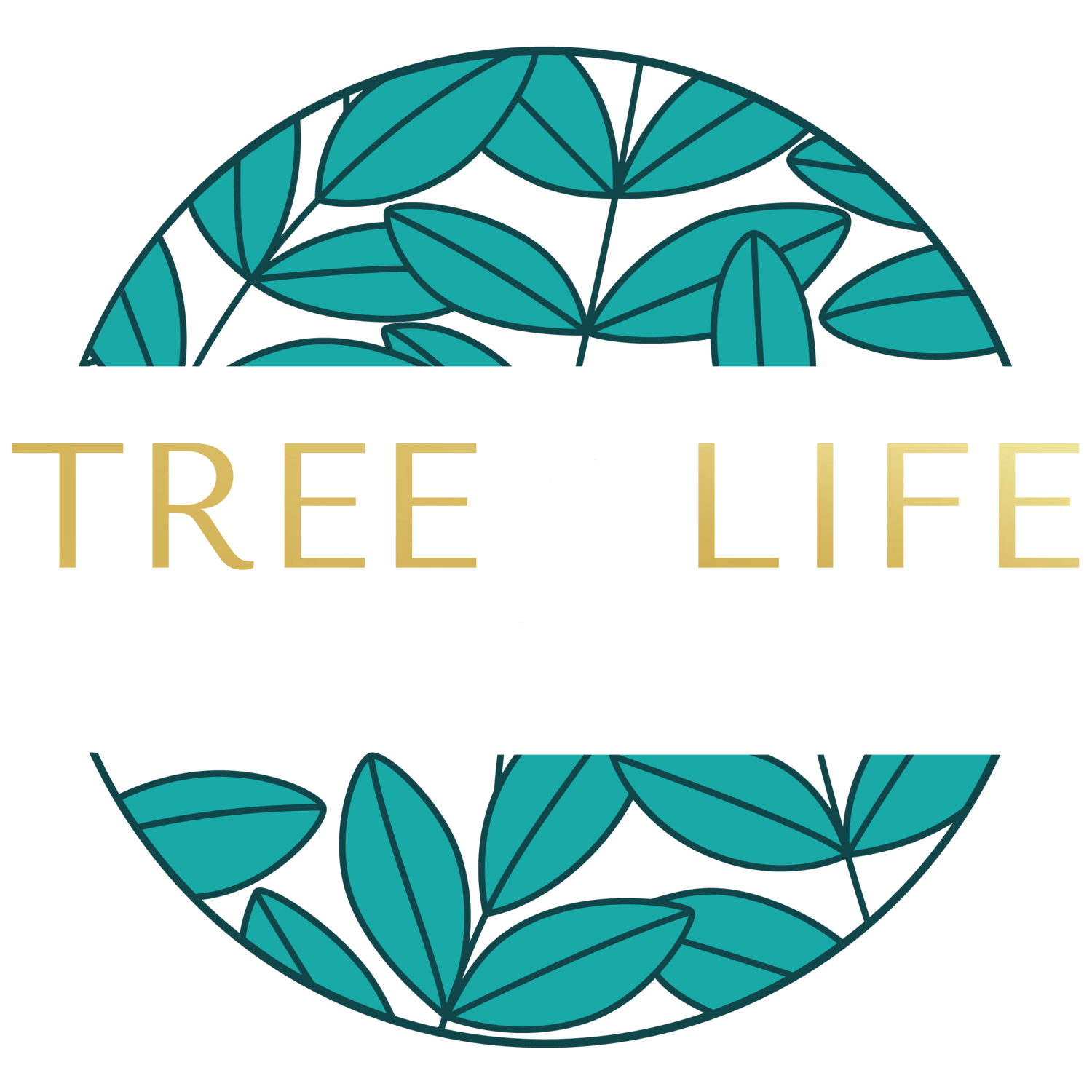 Image 1 of 1
Image 1 of 1


Decolonizing Supervision: An Interactive Approach Rooted in Ancestral Wisdom - On-demand Training
As supervisors we are not only responsible for meeting board requirements but are often tasked with helping associates to identify who they are as healers and who they want to be. What we as supervisors choose to attune to, how we foster growth, who we include in conversation, and the means in which we engage with healers in training is directly interconnected with the type of healing our community has access to.
When "Western" psychology’s dominating definition of health is forced onto people of diverse cultures, it can cause further stigmatization, shame, and division among families and communities. We must ask ourselves; how does this same system cause chronic disconnection when working with the next generation of healers? To interrupt the cycle of pain we see in our communities we explored how to shift supervision from top-down to bottom-up process and guide our supervises as they engage in ethical healing practices rooted in ancestral wisdom.
To do this in a decolonial way, we invited fully licensed, provisionally licensed, and supervisor-level clinicians to attend alongside each other as we worked collaboratively to shift from power-hoarding to power-sharing. This required providers to be willing to unlearn and heal in order to collaborate in anti-oppressive, non-exploitative ways with one another.
We explored a shift from strictly valuing evidence-based practice to embracing the ancestral wisdom of incorporating practice-based evidence into our supervision process. Participants actively engaged throughout the session to decolonize power, knowledge, and relationships. A process we must commit to as ethical mental health professionals guiding our future healers.
Attendees walked away with practical tools and techniques they could immediately apply in their supervision practice, all while contributing to a more equitable and responsive supervisory framework.
As supervisors we are not only responsible for meeting board requirements but are often tasked with helping associates to identify who they are as healers and who they want to be. What we as supervisors choose to attune to, how we foster growth, who we include in conversation, and the means in which we engage with healers in training is directly interconnected with the type of healing our community has access to.
When "Western" psychology’s dominating definition of health is forced onto people of diverse cultures, it can cause further stigmatization, shame, and division among families and communities. We must ask ourselves; how does this same system cause chronic disconnection when working with the next generation of healers? To interrupt the cycle of pain we see in our communities we explored how to shift supervision from top-down to bottom-up process and guide our supervises as they engage in ethical healing practices rooted in ancestral wisdom.
To do this in a decolonial way, we invited fully licensed, provisionally licensed, and supervisor-level clinicians to attend alongside each other as we worked collaboratively to shift from power-hoarding to power-sharing. This required providers to be willing to unlearn and heal in order to collaborate in anti-oppressive, non-exploitative ways with one another.
We explored a shift from strictly valuing evidence-based practice to embracing the ancestral wisdom of incorporating practice-based evidence into our supervision process. Participants actively engaged throughout the session to decolonize power, knowledge, and relationships. A process we must commit to as ethical mental health professionals guiding our future healers.
Attendees walked away with practical tools and techniques they could immediately apply in their supervision practice, all while contributing to a more equitable and responsive supervisory framework.
